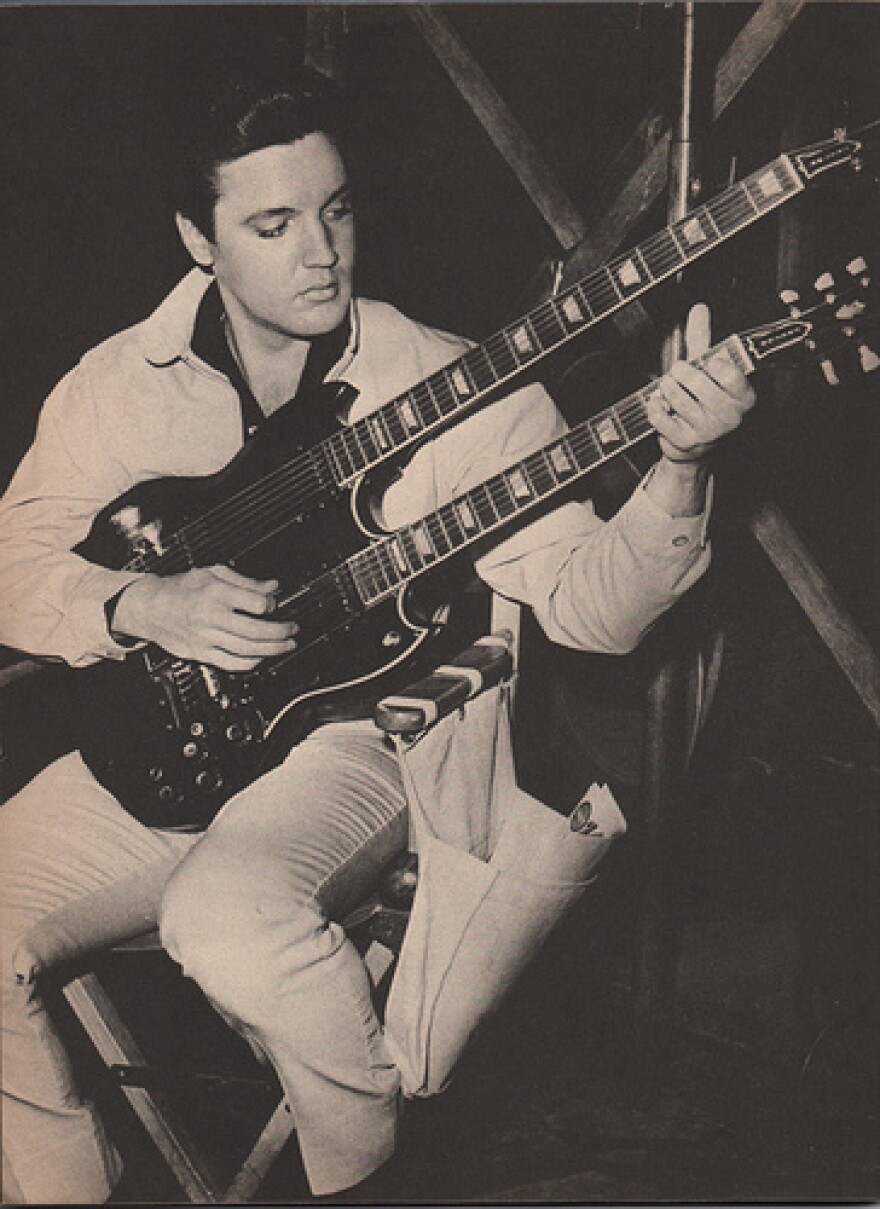The title of the article, written by Maureen Cleave and published in the London Evening Standard in early 1966 was “How Does A Beatle Live?” Buried in the middle of quips and quotes were typical brash John Lennon throwaway lines. “Christianity will go,” he said, “it will vanish and shrink.” John added, “We’re more popular than Jesus now.” Virtually unnoticed at the time, the lines were quoted ala carte in an American teen magazine that summer, and the backlash they drew in the states hit its peak right around the time of the band’s appearance at the Mid-South Coliseum.
At about the same time Lennon was being interviewed, across the ocean here in the states the man who inspired Lennon to take up the guitar was preparing to go into the studio, and taking a position 180 degrees the opposite. Elvis Presley’s May, 1966 RCA Nashville studio session, his first non-movie recording date in over two years, was primarily intended to track his second gospel album, How Great Thou Art, and put down some potential single sides.
Keep in mind by early 1966 it appeared Elvis Presley’s recording career had come unstuck in time. RCA’s first single release of ‘66 had been recorded nine years earlier, in the same session as “All Shook Up.” “Tell Me Why” was Presley’s treatment of a song written by Titus Turner and first recorded in 1956 in New Orleans by Marie Knight. Outside of music from movie soundtracks, there simply wasn’t any new Elvis material to release as the new year began.
So, while they had Elvis in the studio and warmed up, not only did they visit the works of Mylon Lefevre and Mosie Lister, but they moseyed down in the alley for a song or two. His next single was one of the secular tunes tracked in this session, “Love Letters.” “Love Letters” would be Presley’s biggest single that year, charting at number 19. The other releases would be movie tunes like “Frankie And Johnny” and “Spinout,” not intended to sell vinyl so much, but rather to be three-minute commercials for their respective films when they garnered airplay.
Just as Lennon was inspired by Elvis to rock, Presley was initially moved to sing by gospel. As a teen, few things thrilled Elvis as much as attending the gospel singings at Ellis Auditorium downtown. Throughout his life, when he warmed up, he did it to gospel music. When he sat down to relax at the piano, it was most likely a gospel tune he would play. Before he ever showed up at Sun Record’s doorstep, he auditioned for a gospel quartet. He didn’t make the cut, and that’s not really surprising. The vocal qualities that make a soloist stand out are totally different from those that lead to the vocal blend required by parts singing. That’s why, in my opinion, when they stage those huge cast numbers in American Idol with everyone singing in unison, the effect leaves my under-whelmed. There’s no pleasant blending of sound, just jostling of individual voices saying, “Notice me, notice me!” By the time Elvis was in the driver’s seat, he found the balance by taking the lead and hiring his favorite quartets to fill in the background with their pleasantly blended harmonies.
During his active career, Elvis received fourteen Grammy nominations and three awards. The wins were all for gospel projects, including the album How Great Thou Art.
?



